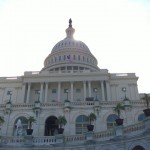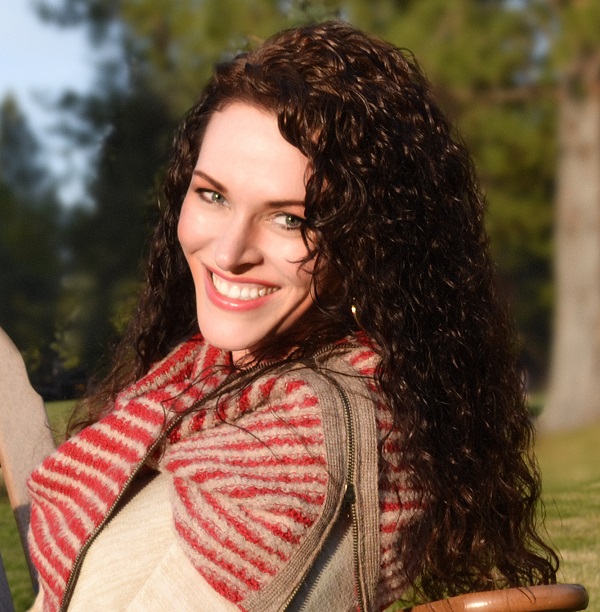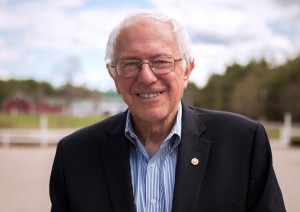Faithful Democrats did an interview with, Rev. Derrick Harkins, Director for Faith Outreach for the Democratic National Committee. Read what he has to say about the challenges of being a person of faith in politics, the opportunities facing Democrats with religious communities, and more.
On The Campaign Trail
An Interview with Rev. Derrick Harkins
1. How does your faith inform your values and political engagement?
I really think that my faith calls me to be engaged in the public square and to bring my values to bear on that engagement. I think about justice, compassion , and the greater good. Those are elements of the Christian faith that are important to me personally, and I believe we are called to bring those values into the world. A lot of people know the passage where Jesus says, “Render unto Caesar what is Caesar’s and to God the things that are God’s.” It’s a Sunday School greatest hit. But a lot of times people don’t understand what Jesus is saying. What he’s really saying there is, “You need to be engaged.” We must know the distinctions between Caesar and God, but that doesn’t mean we don’t act. People think that the more religious and pious they are, they more they need to be removed from the public square. They think that all they need to do is pay taxes and that is it. But that isn’t what Jesus is saying. Jesus is telling us we have responsibilities to God and to Caesar and we have to be engaged.
2. Can Christians engage in politics without compromising their faith? What do you see as the risks of being involved in politics and how do you handle them?
As Director of Faith Outreach with the Democratic National Committee, I have to understand that what we as Christians are called to is even larger than partisan politics. There are ideals and goals that we can see embodied in a given party or platform and we can work towards those. But that’s still very different than saying my faith is identified with any party or person. We need to understand that distinction. We can still be very robust in being engaged in the political realm as long as we realize that’s not the ultimate realm.
One of the big risks to this engagement is that we can compromise our faith when we allow it to be used to political ends. Political involvement should be informed by our faith, not the other way around. I’m not a Christian because I am a Democrat. Personally, I’m a Democrat because I am a Christian. As a Christian, I believe in being concerned about the poor, and promoting the common good. And I believe our party when we say that those are values that are important to us. I feel that the ideals espoused in our party align with my faith. I won’t disparage someone who has a different outlook, but I’ll stand firmly in the values that I believe are important to the Christian faith and the ways I see those values reflected in my party.
3. What has been one of your favorite moments working in the DNC Faith Office?
Wow, there are so many. But you know, speaking generally, they are always when I’m out among voters and when I’m traveling across the country. Amazing things happen on those trips. I get to see people realize that we as Democrats are really committed to engaging with people of faith. I get to be there when they discover that the Democratic party is in large measure comprised of people of faith. And it’s wonderful when people are able to see that and grasp it.
A more specific favorite moment would be from the convention in Charlotte. We had a truly wonderful convention and it was made up of more faith events than ever before. Every day began with a time of prayer and reflection. There were also two large faith panels and groups. The entire time I was down there, I couldn’t walk up the street without encountering people who attended one of these events. They were so appreciative that that was part of our convention agenda. I could see that having that engagement of faith at the convention encouraged and inspired them to go back and do what we need to get done in the weeks we have left. It was so rewarding to hear that appreciation and see what those events meant to people.
4. What opportunities do you see for Democrats in engaging religious communities? What are some challenges you see to this work?
Faith communities have always been points of engagement with the broader community. The times when we have authentically engaged with communities have most often been when we’ve built a relationship with the faith institutions in those communities. This isn’t just true in Black or Hispanic communities; it’s broadly true. That engagement shows we’re willing to commit. Often times local communities are the places where things get done, so it’s important for us to be there. It’s not just about voter turnout. It’s when we’re in communities that we get an accurate idea of the concerns and challenges they are facing. I’m able to speak more accurately in my travels because I’ve gotten to know pastors and communities and learned from them. That kind of relationship building and knowledge is critical, not just for November but in going forward.
A major challenge to this work and type of engagement is to make sure we always respect and understand the specific and unique needs of faith communities. They all want to engage the political conversation in different ways and it’s important that we’re sensitive to that. This is something that we’re already doing in our outreach, but it’s important that we always remember these difference and treat them with care.
5. If you could recommend just one passage of Scripture for Christians to use for reflection on how to approach this election, what would it be and why?
There’s a passage that we’ve been talking about a lot because there is so much truth that hangs on it. The passage is 1 Corinthians 12:26: “If one member suffers, all suffer together with it; if one member is honored, all rejoice together with it.” That means we’re greater together; we are our brother’s and sister’s keeper. We can do so much if we work together, united in the larger purposes that make us a great nation. That is so distinct. It’s a little disheartening when you hear people try to pull us in an opposite direction. We need to do things together. We all have individual liberties and rights, but we are at our best when we have a common purpose. That’s where the President wants to lead us. I was so upset by the snarkiness I saw coming out of Tampa and continuing after. The idea that anyone would belittle what we can do together as a nation is sad. We don’t do things by ourselves; we don’t build it by ourselves. I’m glad it’s not just me saying this. This truth comes from a text far more important than anything I could say. The 1 Corinthians passage is indicative of our values as a party, but also of the values that we as a nation should hold.











